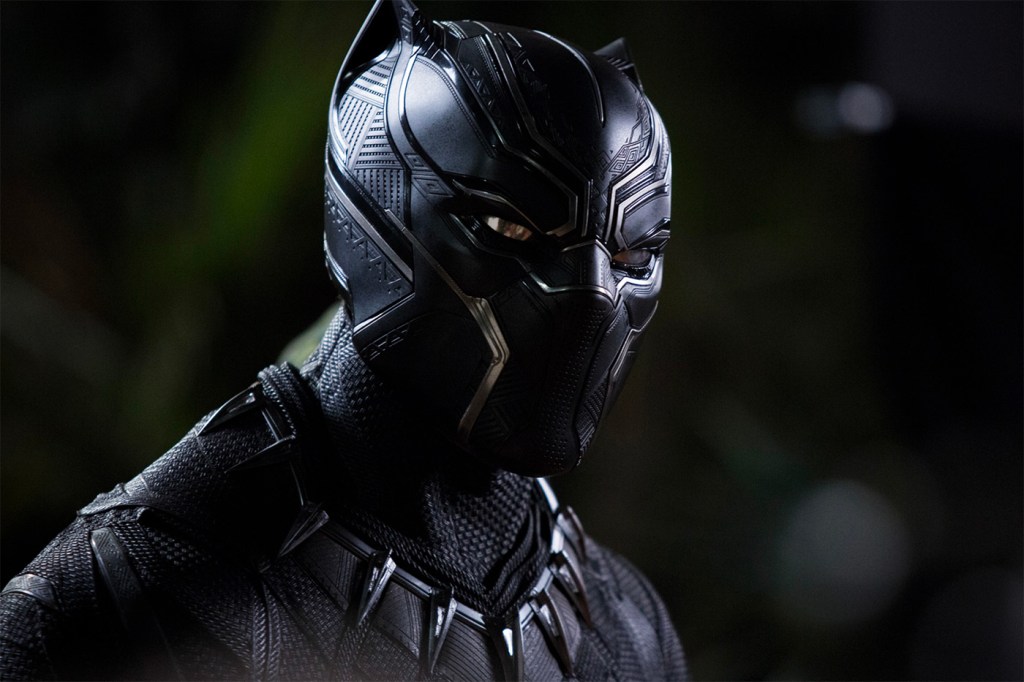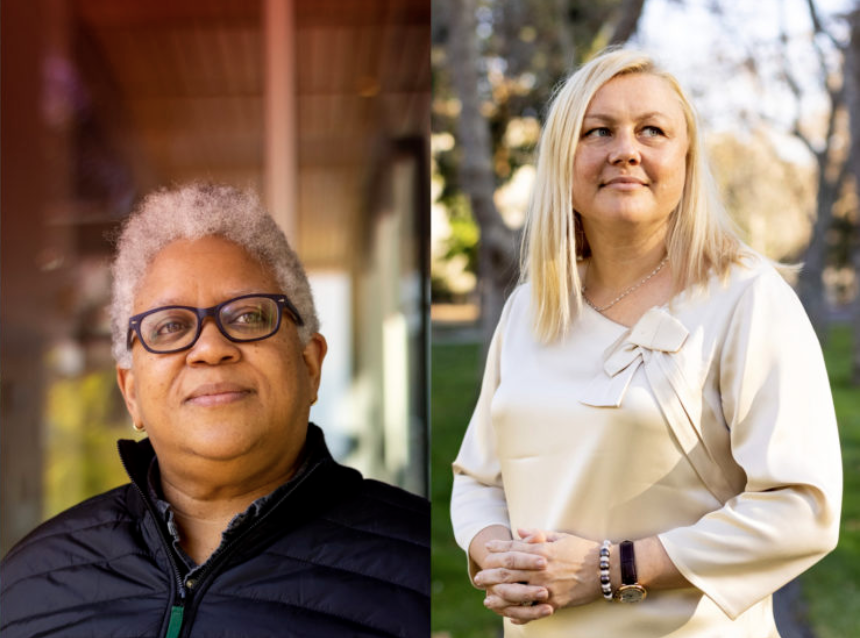‘Wakanda Forever’ is almost here. Four years after Black Panther, has Hollywood learned anything?

When Evan Narcisse first saw T’Challa, aka Black Panther, in the pages of a Marvel comic book, he immediately perked up.
“I felt like he was aspirational in a way that a lot of other Black superhero characters were not at the time,” Narcisse says.
In 2018, when Narcisse sat down in the movie theater to watch “Black Panther,” the “Black glory that has been suppressed, denied, de-emphasized … or just straight up ignored,” the same glory he saw radiating off the pages of a comic book as a kid, was there on the screen. It was also there in the pages of “The Rise of the Black Panther,” which Narcisse co-wrote with Ta-Nehisi Coates.
And Narcisse was far from alone. Ryan Coogler’s “Black Panther” was a genuine cultural phenomenon, grossing $1.3 billion, becoming the first comic book nominated for Best Picture at the Academy Awards and sparking a global conversation around the African diaspora. With its characters, world and focus on a multiplicity of Black experiences, “Black Panther” hit at the perfect time. The hashtag #OscarsSoWhite was still going strong, calls for inclusivity and diversity within Hollywood were still rising and President Donald Trump was openly insulting African countries.

But, four years later and with a sequel, “Wakanda Forever,” hitting theaters this week, has “Black Panther” truly been the industry game changer that people hoped it would be?
In 2018, the film certainly had an impact, says Ajuan Mance, artist, writer and professor of ethnic studies and English at Mills College at Northeastern. Mance ended up seeing “Black Panther” three times in theaters, and at every screening, she saw Black children dressed up in Black Panther costumes, basically jumping for joy.
“In the moment, it was African American people–and, frankly, people of all ethnicities–getting to see Black people and a really Black-centered diasporic vision of Blackness as the center of the story,” Mance says.
Given the film’s box office performance and its cultural impact, Narcisse expected a slate of similar projects to get greenlighted by studios. He’s still waiting.
“I’ve personally pitched projects that were conceptually adjacent to ‘Black Panther’ but didn’t get picked up anywhere,” Narcisse says. “I still think there is a real lack of decision-makers, people with greenlight power and funding power, from diverse backgrounds in the highest echelons of the Hollywood ecosystem. You still have to convince people that stories like that are worth telling.”
Kate Karniouchina, dean of Mills College at Northeastern’s Lorry I. Lokey School of Business and Public Policy, is similarly skeptical that much has changed over the last four years. While she admits that some progress has been made–the Academy Awards expanded its voting body in 2019 to include more minority creatives–“it’s also hard to argue and say that we don’t have any problems anymore.” Karniouchina and a group of researchers delved into the data behind Hollywood and the Academy Awards’ underrepresentation of Black people and people of color.
“In terms of recognition by the academy and the peer recognition, recently we’ve been making some progress, just in terms of raw counts,” Karniouchina says. “But it really depends on the year, it depends on the cycle, so I can’t say we’ve made these strides and now it’s a pretty equitable playing field. It’s not, and it all goes back to resource allocation. … It’s budget allocation, it’s screen allocation, it’s a lot of other things that are not necessarily proportional to the quality of the movie.”
Even when a project with a Black filmmaker or cast is greenlit, the budget allocated for the film and the distribution and marketing used for the film’s release are often not equal to films made by and starring white people, Karniouchina says. She also still sees a major barrier in the international box office, which studios rely on to make a profit on their big budget blockbusters.
“If you look at ‘Top Gun’ or any action movies, usually the assumption is you make the action movie and the majority of your box office will come from abroad,” Karniouchina says. “With movies centered on Black characters, even the excellent ones like ‘Black Panther’ or ‘The Woman King,’ the box office revenues from abroad would be lower compared to the domestic one.”
“Black Panther” raked in $700 million domestically and $636 million internationally, while “Thor: Ragnarok,” which released one year earlier, earned $315 domestically and $538 million internationally. “Spider-Man: No Way Home,” a joint Marvel-Sony production, earned $814 million domestically and more than $1 billion internationally.
While some saw “Black Panther” as a herald of Hollywood’s more diverse future and proof that films with majority Black casts could be successful, Narcisse says it was more of an anomaly given the director, star, supporting cast, studio and funding behind it.
Add to that, the “trenchant standard operating procedures” of major studios that are slow to change and focused on the bottom line, and it’s no surprise Hollywood hasn’t taken the right lessons from “Black Panther.”
“It’s always going to be difficult if filmmakers and storytellers don’t get a chance,” he adds. “If the people who want to tell these stories don’t make their way into the ecosystem at all or if they find constant barriers or doubt, then it’s going to be hard to master the craft to the point where you can create a hit like that.”
Although she admits Hollywood’s struggles with representation and equity are still “a work in progress,” Mance says there have been clear signs that the entertainment industry has changed for the better since “Black Panther.”
“Some of these rules are starting to fall by the wayside about the fact that you can’t have a Black protagonist, there has to be at least one white person,” she says. “I think some of that is loosening up, but it had to be proven for people to actually understand it.”
For Narcisse, change is possible, but it has to start with recruitment and retention of Black and minority talent in the entertainment industry.
“Real change only happens when you empower people to follow their vision and you don’t undercut them and second-guess them,” Narcisse says. “Once you get those people in your ecosystem, it’s about making them feel welcome and empowered and giving them the tools.”
That kind of change is systemic and more than one film–even one as successful as “Black Panther”– is able to create. If “Black Panther” did anything, it “planted a flag for a kind of vision” of Black strength, aspiration and heroism across the diaspora, Narcisse says. Hollywood might still be learning from that original vision, but “Wakanda Forever” is a chance to prove whether it has sustainable, lasting power.
“There’s a level of privilege and confidence and access that comes from having your cultural mythology be recognized,” Narcisse says. “When you don’t have a sense of pride in where you come from, it limits what you see as possible in the world. And the opposite of that is true even more exponentially. If you do have a sense of pride in where you come from, you feel like that history is a wind at your back.”
For media inquiries, please contact media@northeastern.edu.






